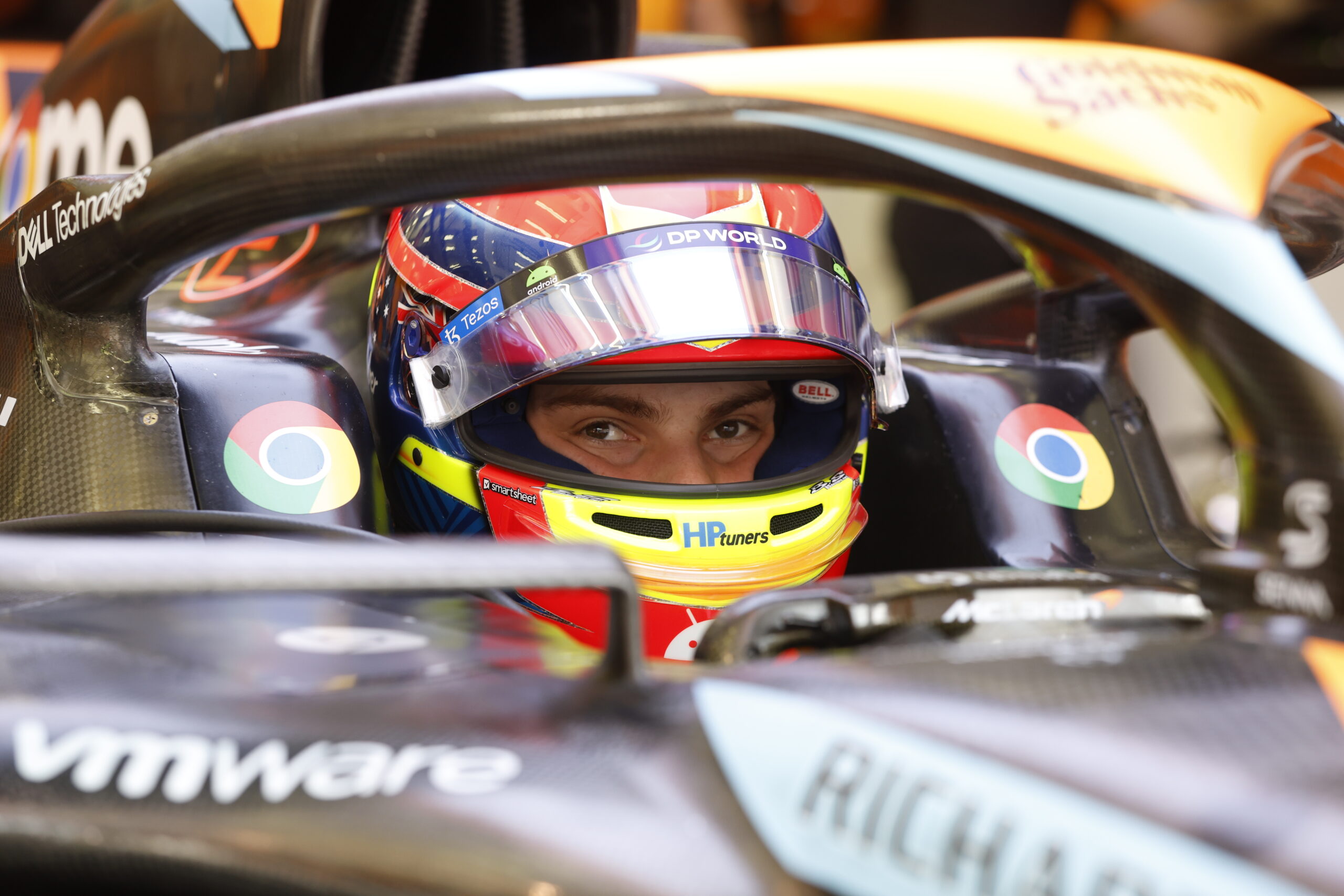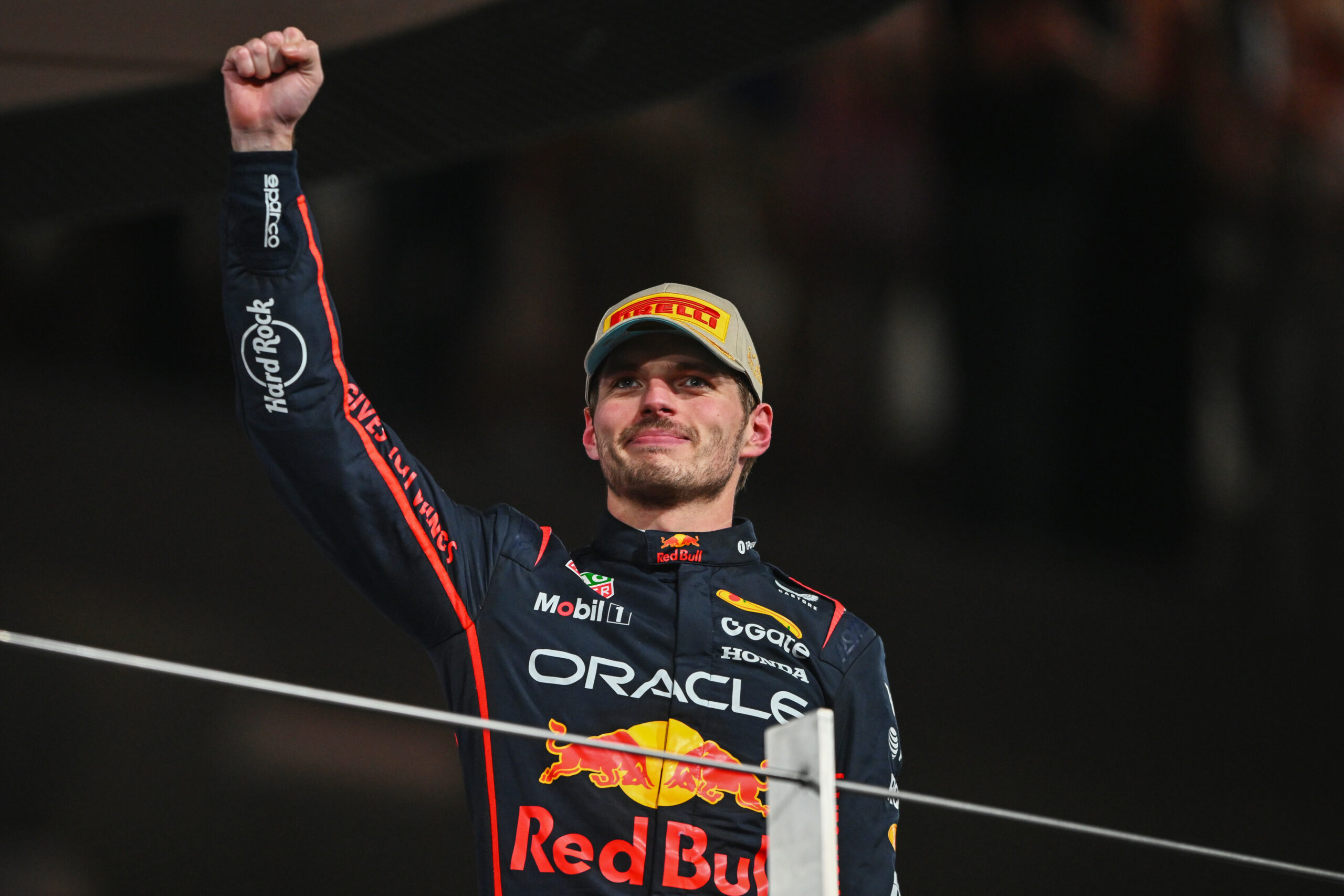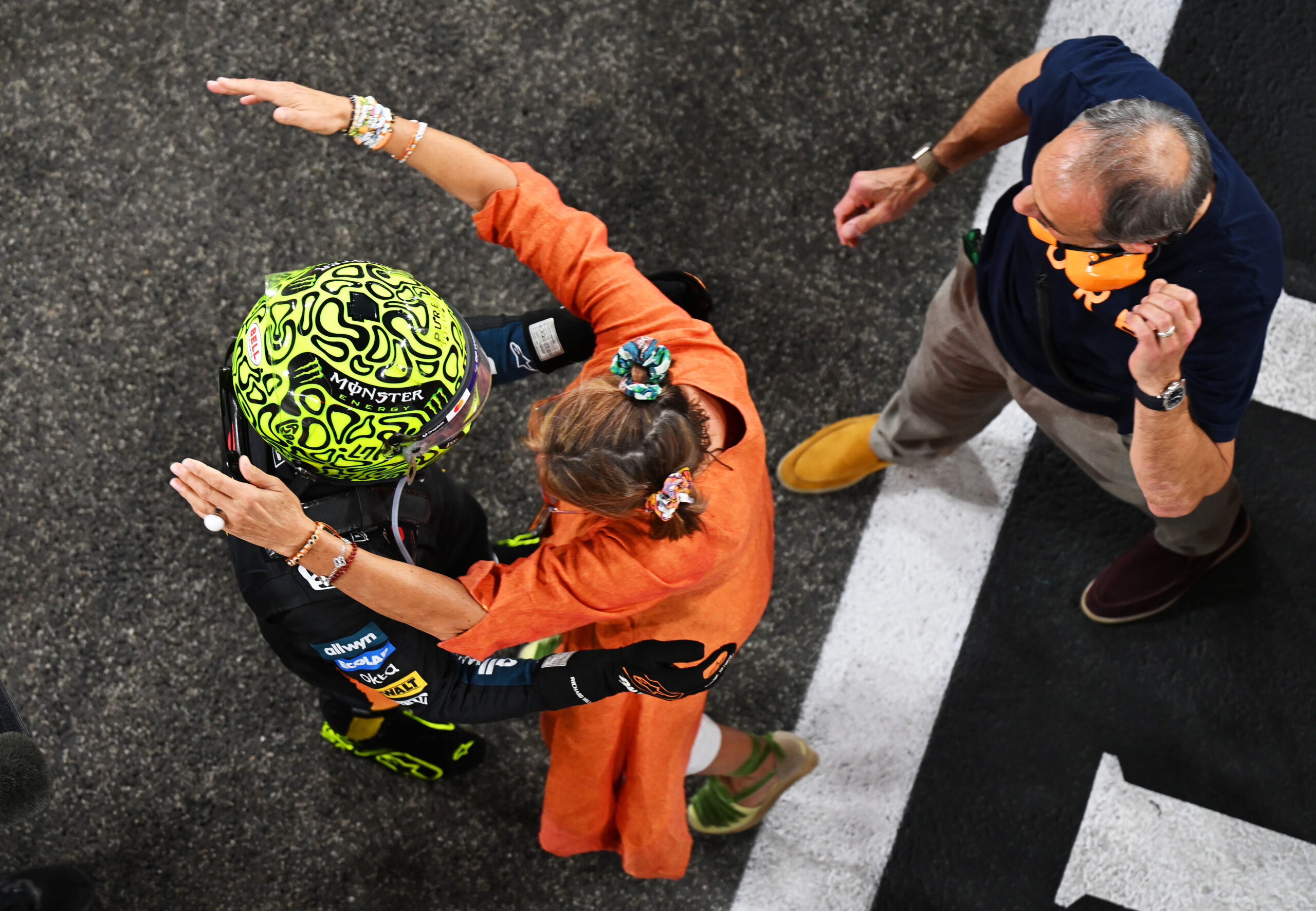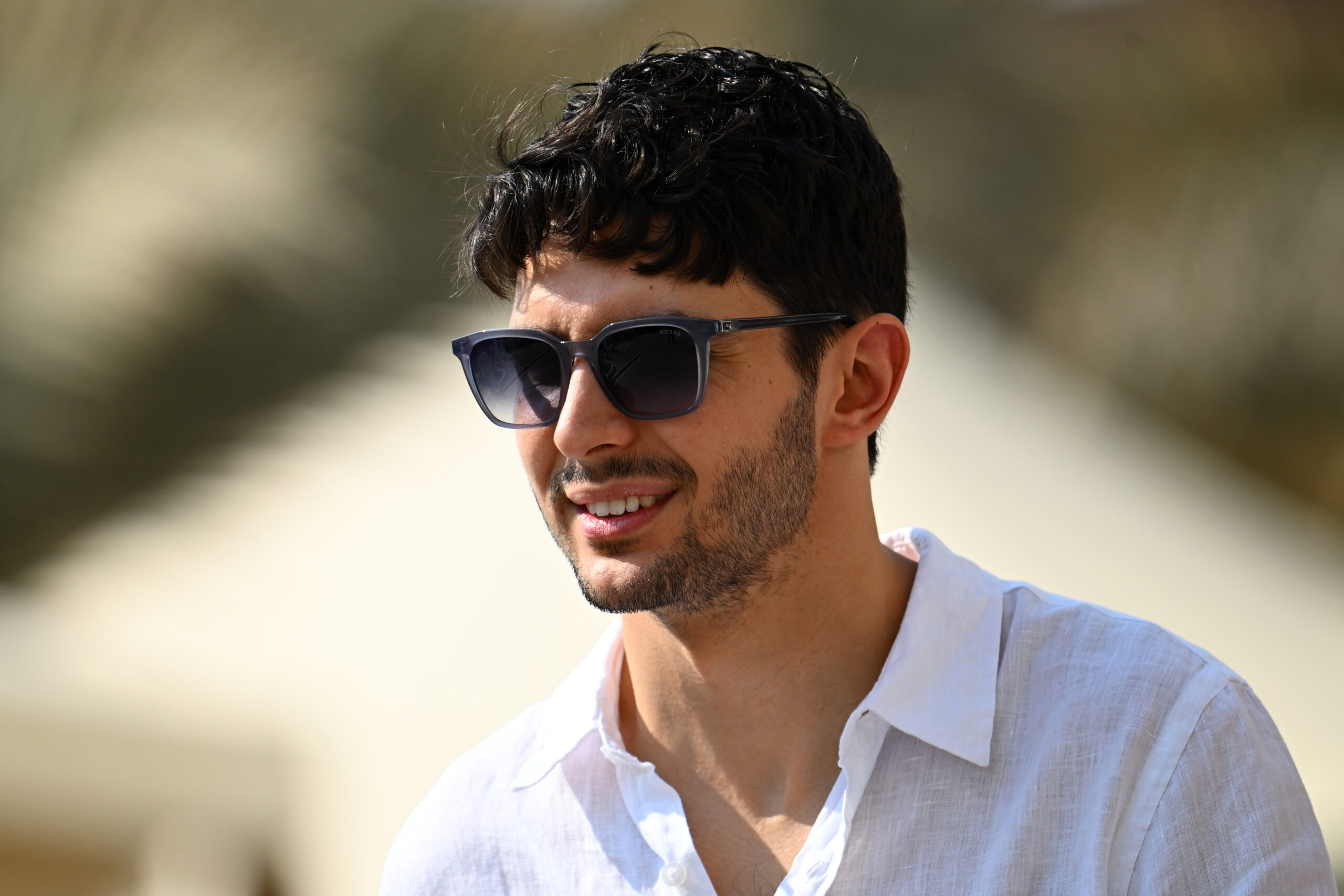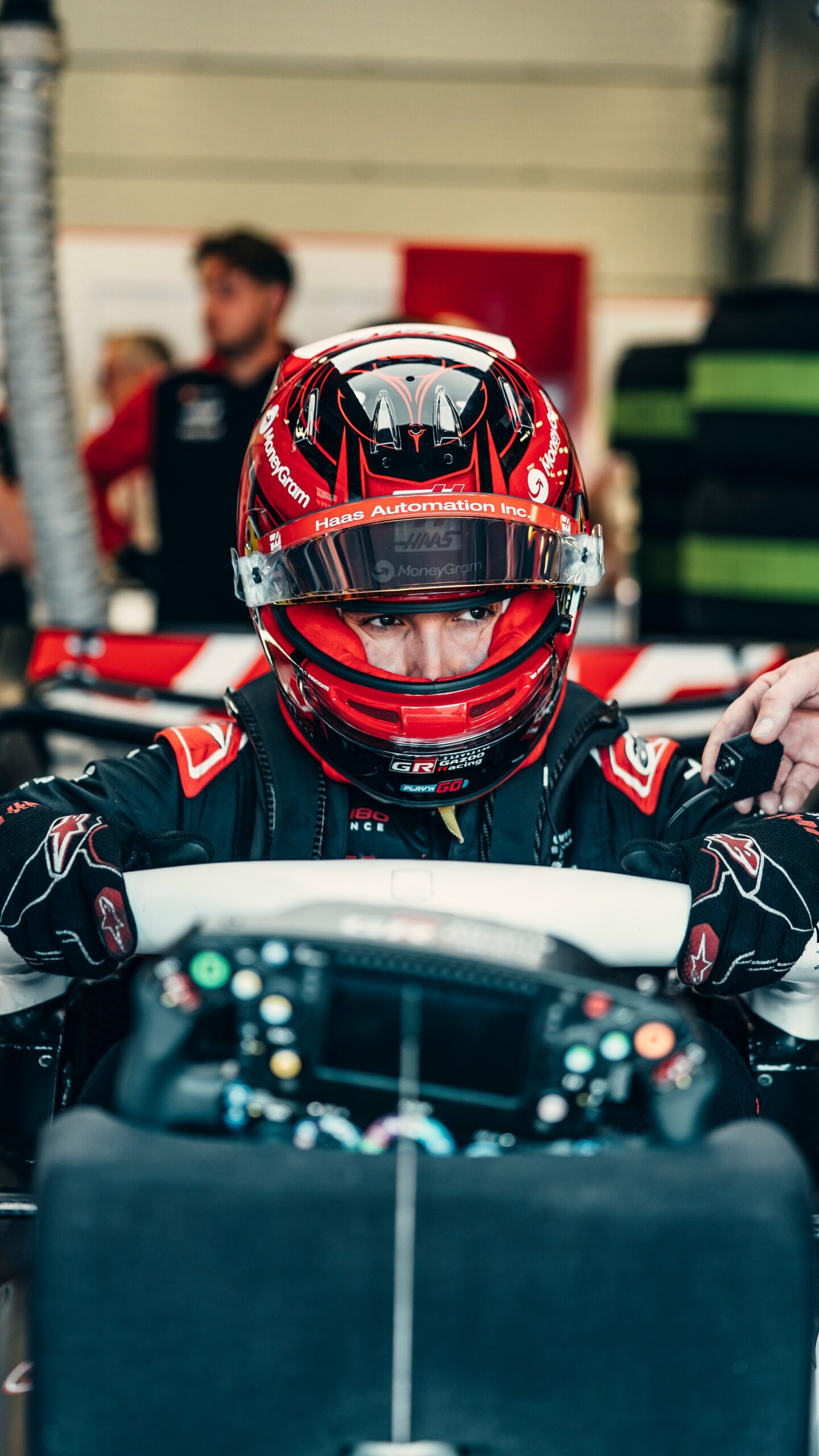Formula One’s youngest driver Oscar Piastri opened up in a media session on Thursday about crucial subjects within the sport, including Just Stop Oil protestors, Mudguard Tests, and the challenges posed by the expanded 24-race calendar approaching next year.
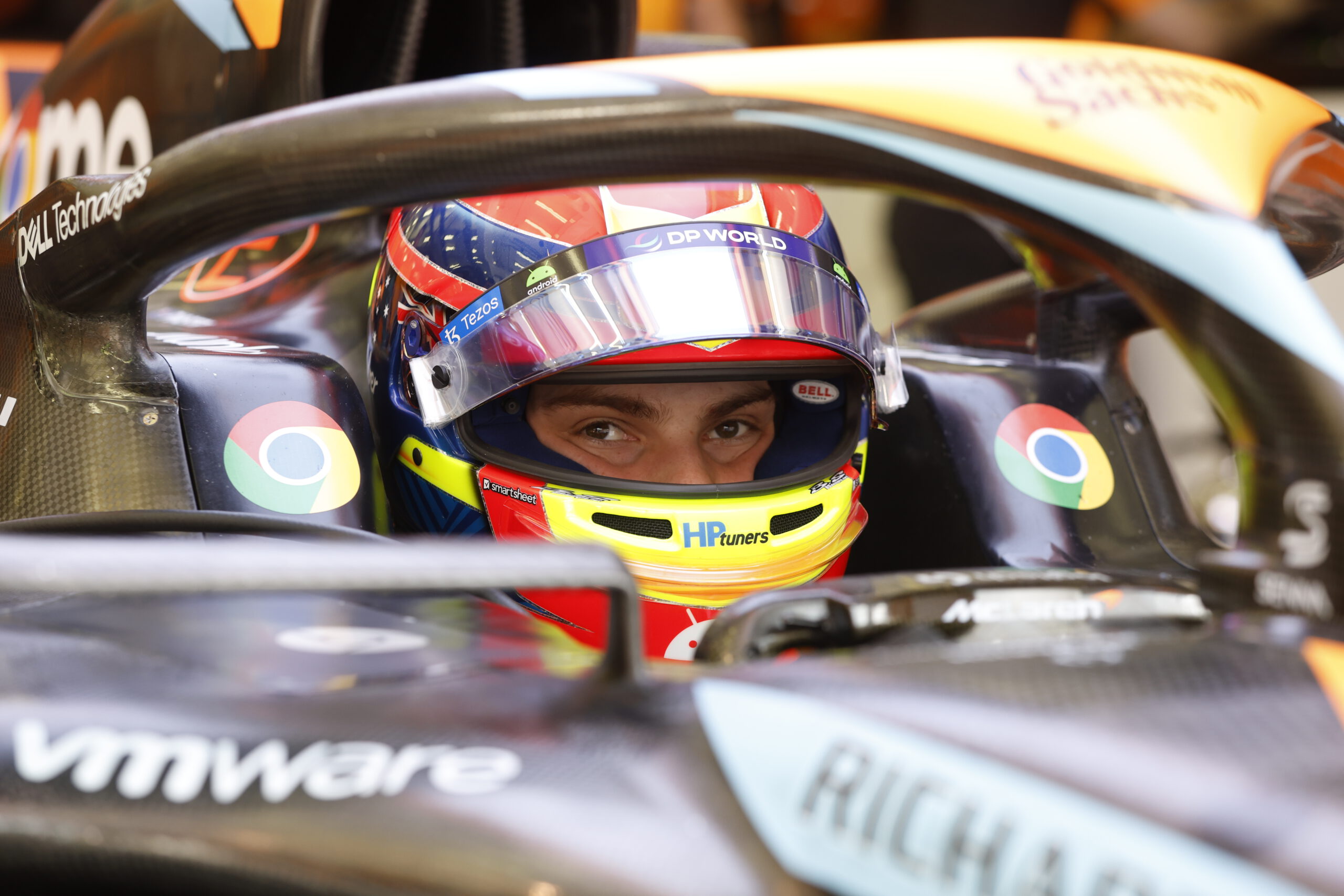
Photo credit: McLaren Racing
Piastri shed light on the importance of driver safety, the need for improved visibility in adverse conditions, and the balance between racing demands and personal well-being.
As this year’s racing season unfolds, McLaren find themselves firmly in the mix of the highly competitive Constructors’ Championship. In sixth place, situated between Alpine and Haas, McLaren’s season suffered a tough start.
However, things looked to have turned a corner as the upgraded MCL6O finished P4 in Austria with Norris at the wheel. This weekend both drivers have the updated package used at the Red Bull Ring.
When questioned about track protestors at Silverstone, the Australian driver emphasised the importance of activists staying safe during Sunday’s race.
“I think everyone’s advice is don’t run onto a live racetrack. There’s no cause that’s good enough to excuse that I think.”
He noted the attendance of protestors at other sporting events throughout the year, including Wimbledon, and The Ashes, expressing concern over the safety issues that specifically surround the racing track.
Protestors are jeopardising their own safety, alongside the safety of the Silverstone team, spectators, and the racing drivers.
“I think it’s one thing to go onto a tennis court or a cricket pitch but not a racetrack.
“I hope everyone stays sensible of course, there’s a time and a place to protest for what you believe in, but during an F1 race is not the time.”
He expressed confidence in the heightened security measures in place this year, as a result of last year’s protests at Silverstone.
“I’m sure security here will be on high alert given what happened last year.”
Silverstone is rumoured to be utilising around 12,000 ‘spies’ in order to keep the race as secure and safe as possible. This is a decision influenced largely by the actions of Just Stop Oil protestors who invaded the Wellington Straight during the opening lap of the British Grand Prix in 2022.
Fortunately for everyone involved, the race had been red-flagged because of Zhou’s accident and a potential fatal incident was avoided.
Turning to the topic of the upcoming mudguard tests, Piastri sympathised with the importance of the testing.
“I think it is a good test to do definitely.”
He praised the FIA’s efforts to establish safety, claiming that visibility is the next major task to address.
“I think the FIA has done a very good job of improving safety generally. I think that the visibility is probably the next task to tackle.”
Piastri expects that the tests can bring improvements to reduce the likelihood of fatal incidents like the one witnessed in Spa last weekend, where Dutch teenager Dilano van’t Hoff lost his life. Irish driver Adam Fitzgerald is also facing a long recovery from the crash.
Piastri advocated for the implementation of mudguards in lower formula racing, such as the F2 and F3 series, to prevent these fatalities and enhance safety across the board.
“I think rain visibility is very, very high on the priority list.
“I think you have to see if it works on those lower formulas as well in the same way.
“Obviously the tyres for them are a lot smaller than ours but if it works and can potentially prevent another accident like that, they definitely should be fast tracked.”
Piastri acknowledged the challenges posed by the expanded 24-race calendar, both for himself and the team.
“Yeah, it’s definitely a tough calendar.”
He expressed his excitement to compete in more races but sympathised with team members who spend extended periods of time away from their families, homes, and friends.
“I’m enjoying going racing as much as I can but there’s thousands of people that do this as a job.”
As the racing calendar extends into December, Piastri discussed the fine line between showcasing the sport and ensuring the well-being of those involved, particularly those with families.
“We’re getting close to nearly one every second weekend on average.
“I think it’s great to be going to these new places and showcasing the sport better, but I think we need to be careful.
“It obviously means a bit less time off for everyone else, which I think is probably the biggest concern.”
He noted that finding the right balance between racing demands and personal well-being is crucial.
“For me, I knew what I was signing up for when I started racing and I was gonna be away from home.
“Ask me again in ten years and I might have a very different opinion. I think for all the other people in the team that have families and stuff like that, it becomes very tricky.”

